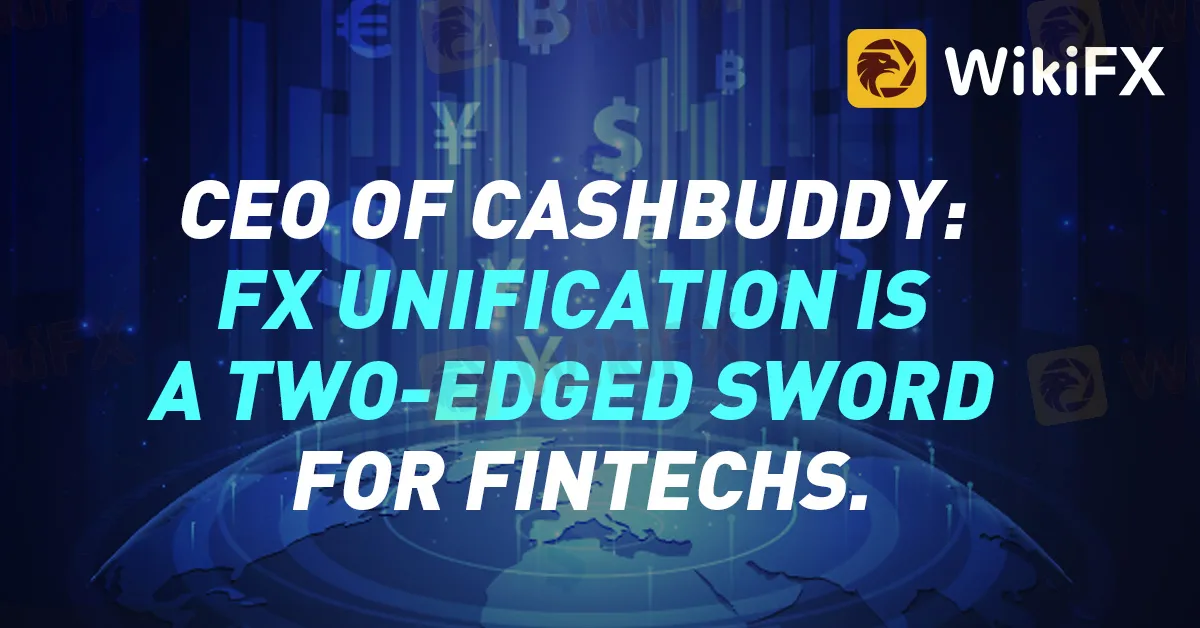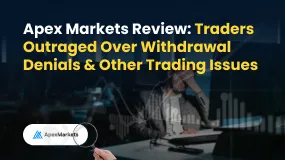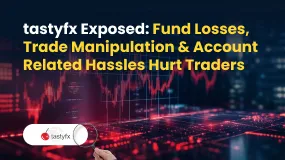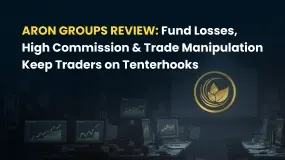简体中文
繁體中文
English
Pусский
日本語
ภาษาไทย
Tiếng Việt
Bahasa Indonesia
Español
हिन्दी
Filippiiniläinen
Français
Deutsch
Português
Türkçe
한국어
العربية
CEO OF CASHBUDDY: FX UNIFICATION IS A TWO-EDGED SWORD FOR FINTECHS.
Abstract:In an interview, Chinwe Michael, Mike Rosanje, Co-Founder and CEO of Cashbuddy, a financial technology business and one of virtual dollar cards for the Nigerian market, discusses the effects of the use of virtual cards in Nigeria.

In an interview, Chinwe Michael, Mike Rosanje, Co-Founder and CEO of Cashbuddy, a financial technology business and one of virtual dollar cards for the Nigerian market, discusses the effects of the use of virtual cards in Nigeria.
The cost of virtual card transactions for fintech in Nigeria is impacted by the central bank of Nigeria's (CBN) unified exchange rate policy, which permits commercial banks and dealers in the forex market to trade FX freely.
The banks and other participants in the forex market to freely sell foreign exchange (FX) at rates set by the market. The Nigerian fintech companies that handle virtual card transactions may have both opportunities and challenges, despite the fact that this measure aims to promote efficiency and transparency.
The policy might benefit us and other fintech businesses, so that's a bonus. First of all, the availability of foreign money is increased, ensuring a constant flow of funds for virtual card transactions and reducing the risk of delays and transaction failures. Second, the real worth of the naira may lower the expenses related to doing business abroad, which is good for fintech firms and their customers. Last but not least, the transparency of market-driven currency rates helps fintech companies to schedule transactions, improving efficiency.
However, after the new policy, further challenges have also emerged. Exchange rate volatility presents a risk as rates fluctuate in a market-driven economy, bringing uncertainty and potential profit and loss implications. Limited access to FX may hinder the ability of fintech companies to acquire the money required for virtual card transactions. Additionally, the transition to the new system companies to make process improvements, temporarily lowering efficiency.
How well fintech companies can take advantage of a market-driven system's benefits while reducing its risks will decide how the unified exchange rate policy will impact virtual card transactions.
Given the existence of so many competitors, how will the unified exchange rate policy affect the level of competition among virtual card issuers in Nigeria?
One of the main implications of the CBN's variable rate policy may be on the pricing competitiveness of virtual card issuers. The true value of Nigerian money, making virtual card transactions more attractive. This makes providers like us to provide affordable rates, attracting more customers and strengthening their position in the market.
The rule cost effectiveness for businesses who provide virtual cards. The lower transaction costs associated with the single exchange rate might increase provider efficiency. This improved efficiency can enable the introduction of new features, promotions, or competitive pricing, giving virtual card suppliers a distinct advantage over their rivals.
Another crucial element is successful market adaption as a result of the Naira float policy. Virtual card issuers who can quickly and successfully align their systems with the new rules stand to earn market share.
Furthermore, the competitiveness of virtual card suppliers will be greatly influenced by risk management techniques. Customers looking for a seamless experience and low transaction costs will be very drawn to providers delivering consistency and dependability despite market swings.
Cashbuddy is ready to seize development opportunities, by ensuring access to foreign funds, promptly reacting to market developments, and putting in place robust risk management, virtual card providers may establish themselves as market leaders in this cutthroat business.
Under the new CBN policy, would the cost of acquiring and transferring foreign currencies increase or decrease for a virtual card service provider?
The costs of acquiring and transferring foreign currency would undoubtedly change for a virtual card service provider.
Virtual card service providers stand to gain from a more open and competitive FX market under a market-determined exchange rate that reflects the real worth of the naira, given access to foreign currencies at rates that closely match market norms, which would lower the cost of obtaining and transferring these currencies.
Exchange rate fluctuations put virtual card service providers at risk and in the dark. To reduce the possible impact of these variations, suppliers may need to create risk management plans or use hedging techniques. Costs for hedging services or currency risk assessment tools, for example, may be associated with these risk management techniques.
Are virtual card operators in Nigeria subject to any legal or regulatory repercussions as a result of the adoption of a uniform exchange rate policy?
Virtual card operators are subject to legal and regulatory repercussions because of Nigeria's adoption of a variable rate policy, which could alter the market environment. Due to banks' strong resurgence, the market for virtual dollar cards may find it difficult to adhere to possibly onerous laws, which would reduce their popularity and boost banks' market share.
Exchange control regulations, license, anti-money laundering laws, the effect on transaction costs and pricing, and keeping up with regulatory changes are all things to take into account. To ensure compliance with the changing Nigerian regulatory landscape, virtual card companies are recommended to obtain necessary requirement

Disclaimer:
The views in this article only represent the author's personal views, and do not constitute investment advice on this platform. This platform does not guarantee the accuracy, completeness and timeliness of the information in the article, and will not be liable for any loss caused by the use of or reliance on the information in the article.
Read more

Apex Markets Review: Traders Outraged Over Withdrawal Denials & Other Trading Issues
Struggling to access fund withdrawals from Apex Markets for months? Does the broker remain silent on fund withdrawal issues? Does the Saint Vincent and the Grenadines-based forex broker reject your winning trades? Have you failed to get a refund into the card used for deposits? Did the broker deduct from your trading account instead? Traders have been imposing these scam allegations while sharing the Apex Markets Review online. We read the reviews and shared some of them below. Take a look!

tastyfx Exposed: Fund Losses, Trade Manipulation & Account Related Hassles Hurt Traders
Are fund losses normal for you at tastyfx? Does the US-based forex broker constantly manipulate prices to hit your trading experience? Do you fail to receive a reply from the broker on your fund withdrawal requests? Do you constantly face trading account issues with tastyfx? It’s time to read the tastyfx review shared by traders online.

Aron Groups Review: Fund Losses, High Commission & Trade Manipulation Keep Traders on Tenterhooks
Have you lost your hard-earned capital while trading via Aron Groups Broker? Has the high commission charged by the broker substantially reduced your trading profits? Does the Marshall Islands-based forex broker constantly manipulate spreads to widen your capital losses? Have you been lured into trading courtesy of Aron Groups No Deposit Bonus, only to find that you had to deposit capital to get a bonus? All these and many more trading issues have become synonymous with the experience of Aron Groups’ traders. Consequently, many traders have shared negative Aron Groups reviews online. In this article, we have shared some of their reviews.

Uniglobe Markets Bonus Review: Understanding the Offers and Uncovering the Risks
Many traders start looking for a new broker by searching for special deals and bonuses. The phrase "Uniglobe Markets no deposit bonus" is something people often search for. Let's address this question clearly and directly. Based on all the information we have, Uniglobe Markets does not currently offer a no-deposit bonus. Instead, this broker focuses on bonuses that require you to deposit your own money first. To get any bonus credits, traders must put in their own capital. Read on to learn how this entire bonus works out for traders.
WikiFX Broker
Latest News
Angel one 2025 Review & Complaints
Latest FCA Daily Alerts and Consumer Warnings for 2025
Webull Widens Crypto Futures with Coinbase Derivatives
Is Nash Markets Regulated or Risk? Truth About Nash Markets’ License & Withdrawal Issues
CySEC Blocks Certification Access to Combat Advisor Impersonation
Exclusive Markets Under the Scanner: Traders Report High Swap Charges, Deposit Discrepancies & More
The United States Outgrows All Its Major Peers
PINAKINE Broker India Review 2025: A Complete Guide to Safety and Services
Pinched By Penny Shortage, US Retailers Beg Congress To Step In
PINAKINE Broker Review: A Complete Look at Its Services and Risks
Currency Calculator




